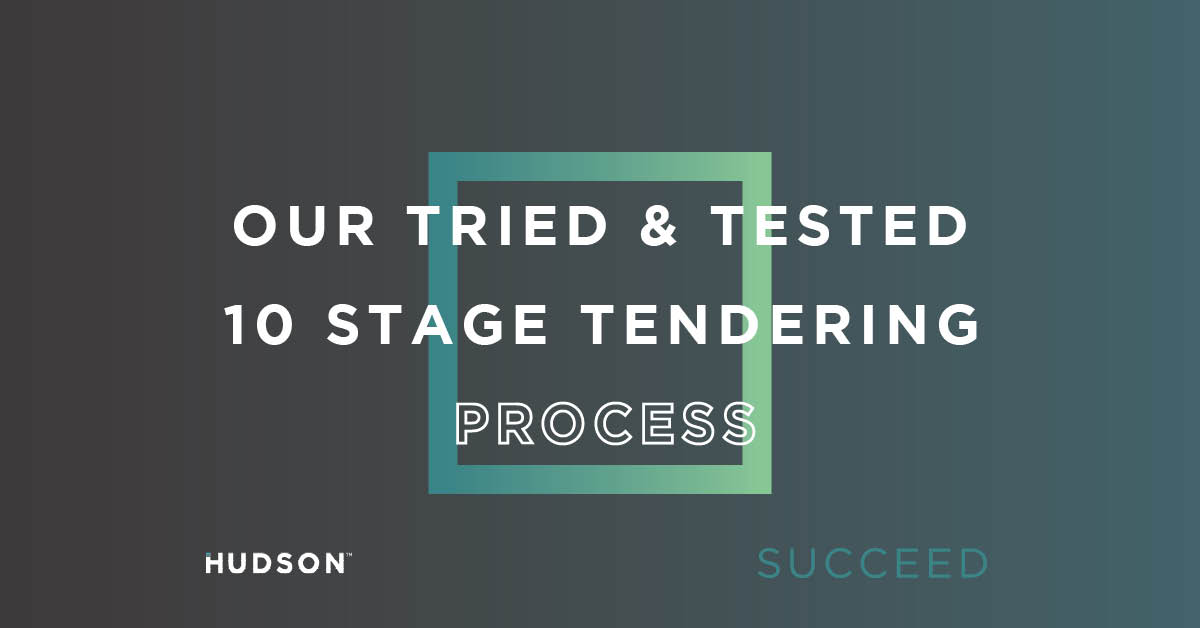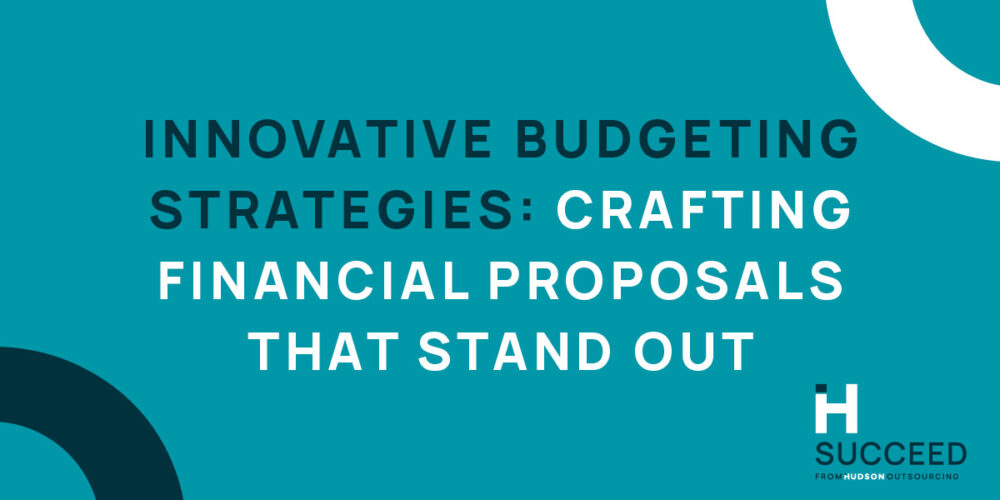Top 5 reasons for tendering
Last updated: Aug 30, 2022 @ 4:27 pm
Our Tender Consultants are often told by companies that they don’t tender as it takes too long, they’re never successful, they don’t have the time, and the buyer already knows who they want to work with.
Tendering for contracts is a powerful way to generate new business, so powerful in fact that many businesses use this as their sole route to winning new business. We think every business should at least try tendering. We understand why businesses are put off from the long, in-depth process you’ve to follow, but spending the time upfront to learn how to tender could be vital to the success and growth of your service-based business.
Our Growth Director, Jill has been winning work via tendering for well over a decade, and she is sharing with you below, her top five reasons for tendering.
1. You don’t need to sell the need for your service
Responding to tenders means businesses have already established the need for your services and have allocated a budget to carry out the work. This reduces the need for selling the benefits of the services and establishing the benefit of investing money.
Responding to a tender means your core goal is to ensure they see that you are the best fit for their business. Surely, it’s worth a try? Just make sure you follow a strict process of what you will and won’t apply for.
2. The project has clear start and end dates
When tendering the client usually outlines when they would like the work to start and end, meaning you can work your internal timescales around this, the project may not run exactly on time, but it will give you an overall indication.
When selling directly B2B, we often have projects on hold waiting for particular aspects to be confirmed or budgets to be agreed upon. We’re not saying this won’t happen when tendering, but your client is likely to be more prepared.
3. Budget signed off in advance
As the budget, has already been allocated, you know what constraints you’re working within, allowing you to best advise your client where to allocate spend.
4. Clarifies your offering to clients
You won’t always be successful when tendering, but completing a tender document often gives you additional clarity on other areas of your business, or how you can productise service offerings. It also allows you to benchmark your fees against what people expect to pay.
5. Research
Tendering allows you to see how businesses are spending their budgets. This helps you to better understand where you should be spending your own time marketing services and what services are the most popular. If you see an influx of a particular type of tender, that is relevant to your overall offering, read the Invitation to Tender documents and align your service descriptions to ensure it is suitable for the market you’re selling into.

10 Stages of Tendering
So, the top five reasons above may have convinced you to tender for contracts. Now, you might be wondering what the typical stages of tendering are and where to begin. Luckily for you, our Growth Director Jill, has developed her 10 stage process which she still uses to this day. Here goes…
1. Develop a checklist
Don’t just assume that every project is right for your business. If you are clutching at straws for a suitable experience, it’s probably not for you. Create a checklist with 5-10 questions to ask yourself when deciding if to bid for a project. Mark these questions between 10-20% depending on the number of questions developed.
2. Searching for suitable tenders
Searching for suitable tenders takes time and commitment. Did you know, we scrape over 1,000 websites every day to populate our portal with suitable public and private sector opportunities? No agency has the resource or time in-house to do this. Searching for tenders is critical for agency growth and a great source of new business, so make this process as streamlined as possible by signing up to Creative Tenders or another suitable portal.
3. Review against your checklist
Once you have sourced relevant tenders, score them against your checklist. If you don’t score 80% or above, don’t tender for the work, put your sales efforts into other activities.
4. Roles and responsibilities
For those tenders that score 80% or above, agree on roles, responsibilities and deadlines between the sales team, ensuring you’re not leaving things till the last minute.
5. Research
Research really is king when it comes to tendering. You need to look into the tendering organisations business, look at what they’ve done in the past, read the tender document from front to back, and compile a thorough understanding of what they are trying to achieve, who their key buyers/audience are, and who they are competing with.
6. Complete draft one of the tender
Draft one is critical as it’s about putting all of your thoughts down onto paper. It’s important to see this as the first draft as you’re bound to think of additional/relevant knowledge and experience as you’re producing the response. Make sure that during this stage you’re answering the information that is being asked of you, and make it 100% relevant to the company your bidding too.
7. Amend, edit, review
The review process should take a while, it’s not about proofreading at this stage, it’s about ensuring you’re answering the right questions, that the response has been correctly levelled against the scoring criteria of the tender and that you’re happy with the message the tender response gives about your business.
8. Sleep on it
Once you’ve edited the response, sleep on it. We’ve all been there when we’ve submitted our tender response and instantly thought, ‘I should have included XYZ’. It’s important to plan your time ahead to give you this important down time before the response is due.
9. Proofread
Only then should you proofread your response for spelling and grammatical errors. During this stage you should also ensure you’ve kept to any word count or font suggestions from the Invitation to Tender document. After you’re happy with the response, ask someone else to read it, it’s hard to see mistakes with our own content when you’ve read it so many times before.
10. Submit
Submit your response, giving yourself plenty of time before the deadline is due. Consider how long this might take when using online public sector tendering platforms, as they are not always as straightforward as they may first appear.

We have covered the five reasons you should tender and the 10-stage tender process. Now, Jill has given us her top 10 tips for submitting a tender. This list is essential to any business looking to tender.
Jill’s top 10 tips for submitting a tender
- Read the whole tender, even if it is 100 pages long. Page 82 may have a vital bit of information about how to respond to the tender.
- Adhere to the specific tendering rules and regulations. If they want the tender in Ariel point 12, complete the tender in Ariel point 12.
- Ask a question if something’s not clear. Don’t just assume it’s a silly question. Tendering portals allow for dialogue with buyers, so ensure you also read the questions and answers asked by other suppliers, they will help your submission.
- Answer with the information they have requested, not with the information you think they should know.
- Follow the format they’ve requested – they are requesting it that way for a reason and make it as easy as possible to find the information they’ve asked of you, creative design is great, but ensure it’s in a readable format that flows.
- Understand how they will be marking your tender, the percentages are hugely relevant to where you should be concentrating your efforts.
- Show consistency in your processes and procedures – don’t contradict yourself from one section to the next.
- Don’t use standard, over-complicated content. Those marking the tender will know if you’ve cut and pasted your company biography from your website.
- Choose either 1st person or 3rd person and don’t mix it up. Don’t make it difficult for the reader to follow.
- Proofread your response more than once, and get another member of your team to double-check for spelling and grammatical mistakes.
This may seem like standard guidance. However, if you remember these tips for submitting a tender, it’ll make it impossible for the buyer not to choose you as a supplier.
Our services
Looking to work with an expert bid consultant? – Look no further than Hudson Succeed.
Tender Writing
Once you’ve found the perfect bid for your business, send it our way. Our Bid Writers can take care of the whole thing for you they’ll even submit it on your behalf. They’ll let you know what they need from you, providing you with a full Tender Writing breakdown.
Tender Ready
Our Tender Ready 4-week programme is perfect for businesses that have never tendered before. A Bid Writer will work with you to ensure you have everything in place to tender successfully. They can also help you better understand the tendering process. Tender Ready offers your business:
- A 12-month subscription to one Hudson Discover.
- Access to Global Bid Directors and Senior Bidding Professionals.
- An Organisation-wide Bid library, including 3 case studies, 5 CVs and policies.
- Additional flexible benefits.
Tender Improvement
If you’ve been tendering but aren’t seeing success from your current efforts, our Tender Improvement package can help. Our Bid Team will assess your previous responses and tender documents. They will work with you to improve for future submissions. This package includes a 12-month subscription to a Hudson Discover portal and additional tendering development services.
Tender Mentor
If you’ve written your own tender response and need it double-checked for errors, Tender Mentor can help. A Bid Writer will proofread your work for any inconsistencies, grammar or spelling mistakes. They will also ensure it’s in line with the specification before you submit. This can help you formulate a winning submission.
Additional support
If you only need assistance with PQQs or SQs we can help. Send the information over to us and we can provide you with a quote for the work involved.
Discover Elite
Upgrading to Discover Elite can help optimise your tendering efforts – even when you’re busy. Our two new time-saving tools can improve your competitor awareness and success rate when bidding for a contract.
The Ultimate Time Saver package offers your business:
- A maximum of five tender breakdowns per month.
- An annual subscription to a maximum of two Hudson Discover sector-specific portals. This option can help businesses that overlap two industries such as Healthcare and Technology, for example.
- Pre-market and award engagement notices monitored on your behalf.
- Buyer portal management, including registration, password management, downloading documents and assessing viability based on your bid or no-bid strategy.
- Weekly phone calls with your dedicated Account Manager to discuss viable tendering opportunities.
The Become a Pre-Bid Master package also includes:
- All of the above.
- Up to seven tender breakdowns per month.
- A Bid Strategy delivered by a Senior Bid Manager with a minimum of 5 years of experience. It will also be managed by our Global Bid Director.
Contact us to find out how we can help your business grow.
Further support
For more information about how to write winning bids, please call or email us. A member of the team will respond as soon as possible with more information.
All our bid writing services require an initial consultation. This will be conducted contact-free and usually takes place over the phone, or via a video call if preferred.
The Hudson Succeed team is proud to support over 700 businesses globally. Throughout the pandemic, we have been thrilled to work with almost 100 new clients. Our Bid Writers have been working tirelessly to support these businesses with their tendering strategy during this difficult time. Find details of our previous successes in our testimonials area.
Find more helpful tips and advice in our blogs. We cover topics including:







